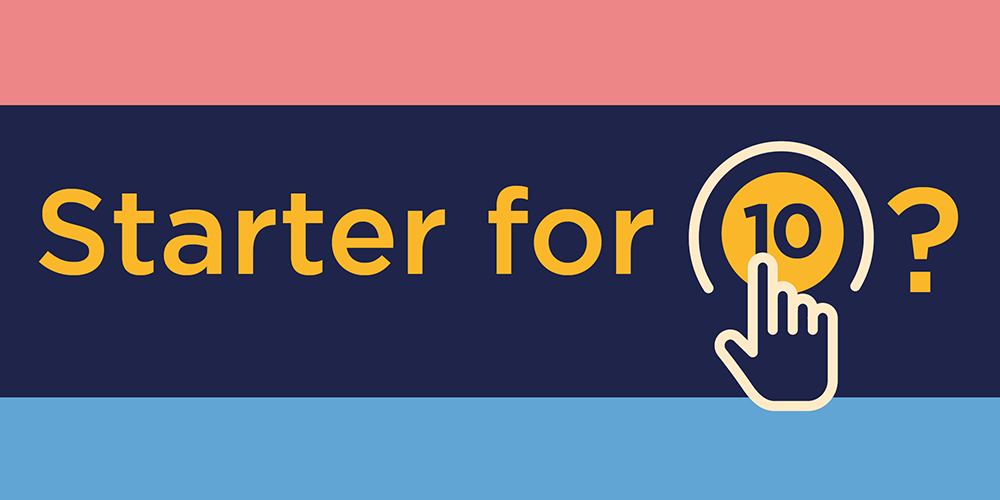Welcome to Starter for 10: our new Q&A series where we sit down for a 10-minute chat with the people behind the scenes of higher education regulation.

In this edition we speak to Compliance and Student Protection Manager, Nike Gustave, about protecting the student interest, her work on harassment and sexual misconduct, and navigating tricky conversations…
Tell us about your role – what do you do at the OfS?
In a nutshell, I work to ensure that universities and colleges that are registered with the OfS are meeting our requirements and are protecting students’ interests.
That involves everything from ensuring institutions are financially sustainable, making sure students are protected from harassment and sexual misconduct, and making sure universities and colleges are continuing to meet our regulatory requirements.
Each of our core regulatory teams has a portfolio of around 70 universities and colleges that they manage, so I do lots of engagement with them to understand how they work and how they are complying with our conditions of registration.
What does a typical day look like for you in your role?
It probably goes without saying that I spend a lot of time speaking with universities and colleges!
However, we also work quite closely with other organisations bodies like the OIA, Competitions and Markets Authority (CMA) and National Trading Standards (NTS), so l often speak to them about our requirements and issues in cases.
I usually work with my team to go through ‘reportable events’ – this is when an institution tells us something has happened that may affect their ability to comply with our conditions – and determine the best way to deal with them. We also go through notifications, which students, staff, and members of the public can submit to us if they think an institution isn’t meeting our requirements.
Decision-making and assessing information are a key part of my role, so a chunk of my day is taken up by reviewing evidence and considering requests. Policy work factors in too, including research/horizon-scanning and preparing guidance for colleagues so everyone has the knowledge, support and understanding they need when assessing compliance with our regulatory requirements.
Can you tell us about an important project you are working on and why it’s important?
I lead the policy team that's been working on measures to prevent harassment and sexual misconduct in higher education. We have a new condition that will come into full effect on 1 August, which will require institutions to have effective policies to tackle and prevent harassment and sexual misconduct, robust procedures to address it if it occurs, and support for students who experience it.
We’re currently working on ways to explain this regulation to students, so that they understand why we’ve strengthened our approach, what they can expect, and the training they should be getting from their university or college. It’s important that we communicate this very clearly in a language they can easily understand.
What aspects of your work excite you the most?
I really enjoy engaging with institutions on important issues, where the focus of the discussion is reaching a shared view on how to secure better outcomes for their students.
My preference is picking up the phone and speaking with institutions directly, rather than sending a letter or email.
I think most universities and colleges appreciate direct communication and it’s important to build a strong working relationship.
What are the challenges you’re coming up against in your area?
One challenge is helping universities and colleges to understand how they can manage priorities that they might feel are in competition with each other. Many institutions are facing financial challenges and that might seem at odds with other aspects of our regulation that seek to protect students’ consumer rights.
Part of my role is to help institutions to understand it’s not an ‘either/or’ situation – both are integral to the student experience and it’s important that students get what they were promised, even in an uncertain climate.
Why did you join the OfS?
What did you do before you came here and how have your previous experiences informed the way you work now?
I wanted to have a significant impact on people’s lives, and I felt like I could do that here. I’ve always worked in the broader public sector, from local authorities to the NHS and the civil service.
I joined the OfS at a really interesting time, just as it was beginning to shape its focus and move out of the ‘start-up’ phase.
Coming from a regulation background, I have experience in asking the questions that help us understand how effective we are as an organisation. Are we delivering on our objectives? Are we ensuring that institutions are delivering for all students, and if not, what can we do to make that happen?
I think it's incredibly important that students who see universities or colleges on the OfS register can assume that those institutions are doing all the things they should be doing.
If you could give one piece of advice to students in 2025, what would it be?
Make the most of all the experiences that are available to you. If the experiences you were expecting are not there, ask why!

Comments
Report this comment
Are you sure you wish to report this comment?